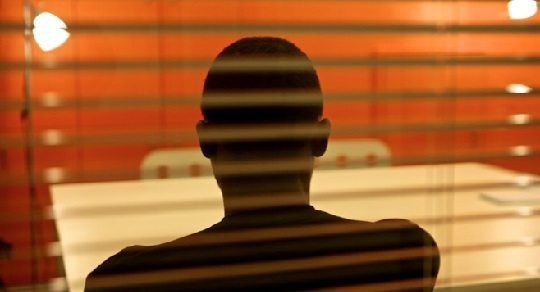Lesbian speaks out about the heartbreaking process of trying to ‘prove’ your sexuality to the government

A lesbian from Zimbabwe has spoken out about how it took five gruelling years to convince the Home Office that she’s gay and should be granted asylum.
Angel fled to the UK five years ago, after police found her naked in bed with another woman and beat the pair of them up.
While sex between two men is a criminal offence in Zimbabwe, technically being a lesbian is not something you can be arrested for. Instead, police will give out their own “instant justice”, Angel said.
In 2015, she found herself in an interview room with a Home Office official whose job was to work out whether Angel was lying, or whether she really was a lesbian.
She’s one of more than 1,500 people who seek asylum in the UK on sexuality grounds every year.
The official’s conclusion would determine whether Angel would be granted asylum in the UK, on the basis that she’d be persecuted for her sexuality if returned to Zimbabwe.
“How do I know I am a lesbian? How old was I when I knew? Who did I tell?” Angel recalls being asked.
“It is as if the Home Office expect a date and time.”
Angel was interviewed for seven hours. She told the Home Office interviewer about a secret relationship she’d had with a girl in high school and how she was betrayed by a family member she’d confided in about it.
Angel also spoke about being raped by two men, when she was in her thirties, who said they intended to “straighten her up”.
Annotations in the interview transcript make it clear that Angel was distressed reliving these accounts.
“**Applicant is still crying**” was repeated three times.
Then, the interviewer began asking her why she’d had so few relationships with women, especially since arriving in the UK.
Angel explained that it was taking time to open up to people and recover from what she’d been taught was the heavy stigma of being a lesbian.
The interviewer kept asking, outlining Angel’s lack of long-term relationships and asking how Angel could identify as a lesbian.
“It is because of the feelings that I feel,” Angel said. “I have not been given a free platform to practise my sexuality.”
The Home Office’s decision on whether to grant or refuse asylum relies on whether the interviewer finds the asylum seeker’s account authentic and believable – but each interviewer may have their own views on what a believable account is.
Three months after her seven-hour interview, Angel found out she was refused asylum.
Between 2015 and 2018, the Home Office’s refusal rate for sexuality based asylum claims went up from 61 percent to 71 percent.
Supported by her church and an LGBT+ charity, and sleeping rough after her asylum support was cut off, Angel was eventually granted asylum in 2019 – after painstakingly proving how dangerous it would be for her to return to Zimbabwe.
She told the BBC that the safety of being granted asylum didn’t begin to sink in until her official resident permit arrived a month later.
“Looking at it, I cried just thinking of what I have gone through,” she said.

